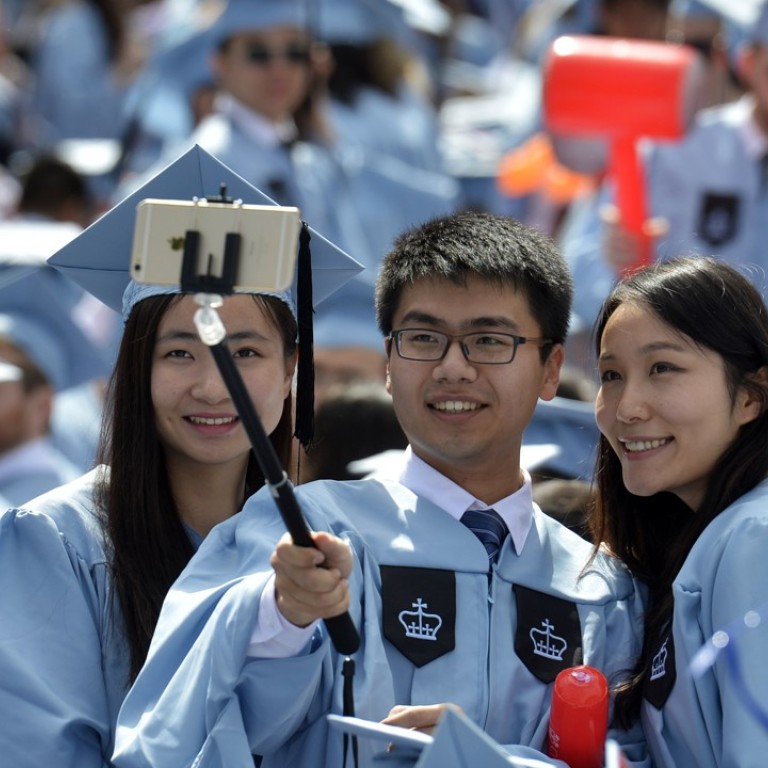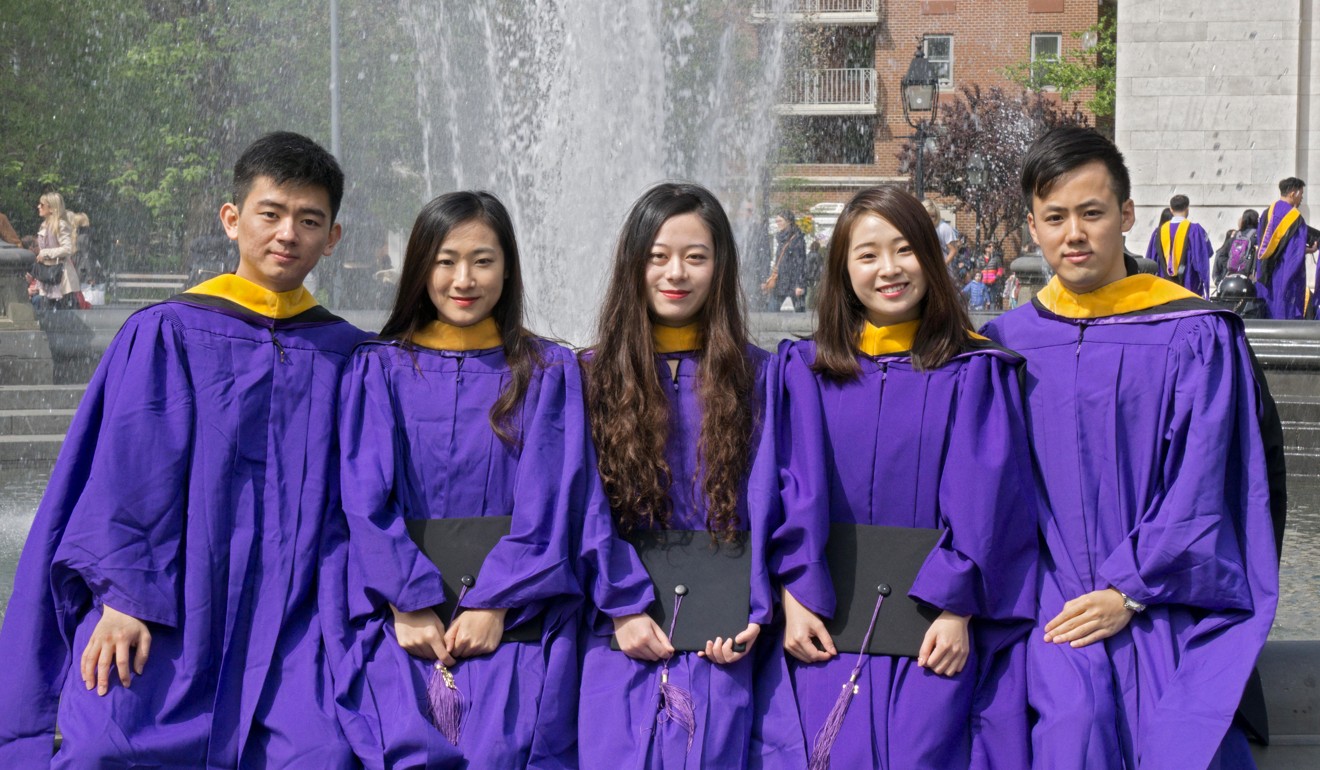
Does it still pay off to study abroad? New research suggests ‘yes’ for returning Chinese graduates
Chinese students armed with a foreign degree are this year being paid 17.2 per cent more than those graduating from a home university: BossZhipin poll
Chinese students returning home with overseas educational qualifications are still likely to be paid better in the short and long run, than those educated at home, although fresh graduates arriving back on home soil have become more realistic in what salary levels to expect in their first jobs.
Wide-ranging new latest research, polling 100,000 Chinese grads, suggests Chinese students armed with a foreign degree are this year being paid 17.2 per cent more than those graduating from a home university.
Carried out by BossZhipin, a Beijing-based big-data recruitment firm, the study showed 26.3 per cent of fresh graduates from overseas universities are being paid over 10,000 yuan (US$1,500) and 2.3 per cent more than 20,000 yuan per month in their first jobs in China – which is double, and triple the level of the average domestic graduates.
But interestingly, the advantages of an overseas educational grow even more pronounced in the longer run.
After eight years in work back home, 43.2 per cent of the returnees can now expect to be paid over 20,000 yuan a month, 30 percentage points more than domestically counterparts.
Newly returned students, on average, pitch for expected monthly salaries of 8,315 yuan, but in reality they are actually being paid 7,306 yuan.

Shanghai and Beijing, maybe unsurprisingly, are the biggest magnets for returning graduates, accounting for 28.8 per cent and 24.9 per cent, respectively. Shenzhen, Hangzhou and Guangzhou ranked 3-5, attracting 8.6 per cent, 6.5 per cent and 4.1 per cent.
Official Ministry of Education data shows 544,500 Chinese left to study abroad last year, of which 498,200 were self-funded. But the rate of returnees this year has soared to 80 per cent, compared with just 30 per cent a decade ago.

Higher earning potential and more promising career prospects have helped internet technology-related sectors overtake financial and professional areas – such as lawyers and accountants – to become the most desired choices for returnees looking to settle at home, despite half of them being armed with business or finance degrees, the study also showed.
This year, 16.2 per cent of returnees chose to work for internet firms, up 3.1 per cent from 13.1 in 2014. Business and financial sectors attracted 14.9 per cent compared with over 18 per cent three year ago, followed by education and training (13.4 per cent), media’s (8.7 per cent) and culture and entertainment (6.4 per cent).
Internet giants and so called unicorn start-ups (those with US$1 billion+ valuations) were shown to be the best payers and students also considered them as offering the best career prospects.
Consulting, legal, accounting and auditing jobs still offer handsome pay packages, and were identified as being ideal to build future connections, although more are losing out now to hi-tech recruiters.
Although internet companies are most popular among returners, just 42 per cent of those who accepted job offers from them actually had computer science- and natural science-related majors.
Business and financial majors were the most common, accounting for over a half of returning students over the past two years.

